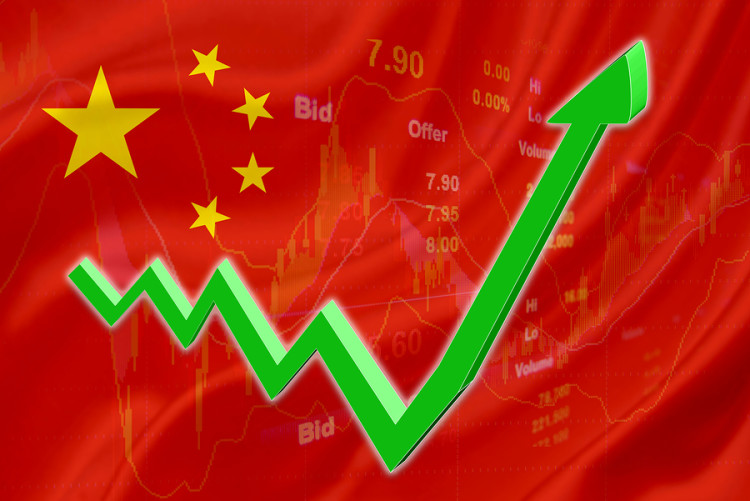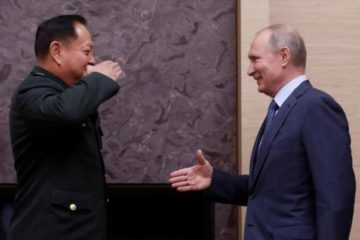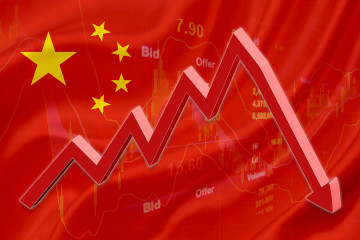China Isn’t Threatening to Overturn the World Order: Zhu Feng

published Aug 8th 2016, 4:00 pm, by Zhu Feng
(Bloomberg View) —
A bit of China-bashing is inevitable in any U.S. election year. Over the past month, though, after China roundly dismissed an arbitration ruling that rejected its claims in the South China Sea, a chorus of voices has angrily denounced the country as an international outlaw. Western pundits have likened China’s reaction to imperial Japan’s decision to quit the League of Nations, which eventually led to war in Asia, or even to Hitler’s trampling of the global order.
This is pure, unwarranted hyperbole. And it’s no more helpful than eruptions from Chinese right-wingers, who see the ruling as part of a conspiracy to hem in their country’s rise. If the West wants to change China’s attitude, it also needs to reexamine its own.
QuickTake Territorial Disputes
In reality, China’s objections to the tribunal established at the Permanent Court of Arbitration in The Hague hardly constitute an earth-shattering rejection of the global order. The tribunal judges may have rebuffed China’s argument that the case brought by the Philippines involved sovereignty issues, and hence fell outside their jurisdiction. But it’s not crazy to think that at least part of the Philippines’ motivation was to improve its sovereignty claims over parts of the South China Sea.
Nor is China’s rejection of the tribunal’s final ruling unprecedented. Both the U.K. and Russia have ignored similar awards that they didn’t like. And the U.S. doesn’t exactly boast a strong record of adhering to international rules. It still hasn’t ratified UNCLOS, and it simply rejected the jurisdiction of the International Court of Justice when it ruled against the U.S. in a case brought by Nicaragua in the 1980s. More recently, of course, the U.S. launched its 2003 invasion of Iraq without any international authorization, then proceeded to abuse prisoners of war at Abu Ghraib against commonly accepted rules of war. Rather than branding the U.S. a rogue nation, China has actively participated in reconstructing Iraq and done what it could to help stabilize the country.
China’s critics are right about one thing: The country has benefited greatly from the rules-based order in place since the end of World War II — and indeed, from the U.S. security presence in the Pacific, which has given China the space to concentrate on its economic development. Why would it want to overturn that order wholesale? Its respect for other global rules and institutions — since joining the World Trade Organization in 2001, China’s won 21 of the 36 WTO arbitration cases it’s brought — should be obvious by now.
At the same time, China is clearly groping for a way to integrate into the current global order while also being accorded the respect and influence it feels it deserves. Frictions are inevitable. That doesn’t mean each is an attack on the preexisting system, or part of some master plan to overturn it and place China at the head of a new one. It does mean that the system itself needs to be open to evolving, instead of being treated as an inviolate structure that can’t possibly be questioned.
Judging China by whether it implements the award 100 percent, immediately, is therefore neither fair nor wise. The tribunal’s ruling is a genuine setback, both legally and diplomatically, and China can’t be expected to give up all its claims overnight. Instead the goal should be to create space so that China can gradually and gracefully conform to the ruling over time, through a process of developing new norms in maritime Asia.
The priority for now should be to ease tensions and find a set of rules upon which everyone in the region can agree. Fortunately, this realization seems to be sinking in, with the U.S. encouraging talks between the Philippines and China and refraining from conducting more provocative naval operations near islands controlled by China. Such talks should proceed without preconditions on either side: China can’t be expected to accept the ruling first, nor the Philippines to abandon it. Instead, the two sides should concentrate on less-controversial issues such as fishing rights and infrastructure development, just so they can start talking again.
The tribunal ruling is certainly a lesson for China: It needs to be smarter and more skillful about mastering international rules and norms if it wants to continue its steady rise. But the process of integrating China fully into the rules-based global order is going to be a slow one and depends as well on halting progress toward establishing rule of law on the mainland itself. Meanwhile, the world should pay less attention to caricatures of China and more to its actual behavior — and work patiently to keep the country heading in the right direction.
This column does not necessarily reflect the opinion of the editorial board or Bloomberg LP and its owners.
To contact the author of this story: Zhu Feng at zhufeng@nju.edu.cnTo contact the editor responsible for this story: Nisid Hajari at nhajari@bloomberg.net
For more columns from Bloomberg View, visit Bloomberg view
copyright
© 2016 Bloomberg L.P







No Comment